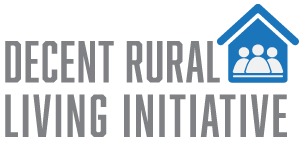Pilots
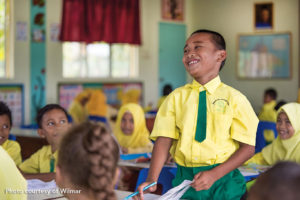
Implementers: Sime Darby Plantation Berhad and Wilmar International Ltd.
Partners: Business for Social Responsibility, Earthworm Foundation, The Centre for Child Rights and Business
Objective
Building on from Wilmar’s Child Protection Policy Implementation Manual, the objective of this pilot is to test the practical applicability and refine recommendations for practical solutions to address child protection in Indonesia and Malaysia. The pilot will also develop KPIs and capacity building tools for implementation in the wider palm oil supply chain.
Design principles for the initiative
This pilot will take place in both Indonesia and Malaysia, and will focus on the following:
- Build supplier understanding in implementing the Child Protection Implementation Manual in a manner which is practical, feasible and sustainable and meets stakeholder expectations.
- Test and measure the impacts generated from the implementation of the Manual, to establish best practice for the palm oil sector in Indonesia and Malaysia and as a means of risk management and accountability for the palm oil supply chain.
- Enable the development and refinement of comprehensive and practical manuals for the Indonesian and Malaysian palm oil sector respectively, to be used as a guideline for the promotion and protection of children’s rights.
- Identify and share lessons learned from the pilot with a broader pool of companies within the Indonesian and Malaysian palm oil sector.
Ms Perpetua George, Wilmar‘s General Manager for Group Sustainability, said: “Defining practical and sustainable solutions is a significant step towards eliminating child labour from the palm oil industry and ensuring children’s rights are protected. We have worked since 2019 with many of our brand customers on this initiative for child protection, and this shows the importance of collective action. We welcome Sime Darby Plantation into the pilot work as we urge wider adoption of the manual as we all work collectively towards the common goal of protecting the rights of children.”
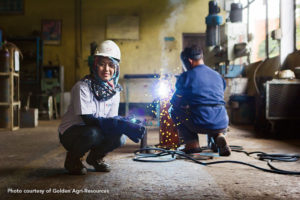
Partners
Primary: Cargill Tropical Palm, Golden Agri-Resources and Musim Mas Holdings Pte Ltd
Secondary: Sime Darby Plantation Berhad
Objective
The objective of this pilot is to strengthen the role of gender committees on estates and harness their potential to create a more gender-balanced industry. To this end, the underlying purpose is to change how individuals and gender committees perceive themselves, and to enhance their potential as change agents within the system.
Options for implementation
- Anchor Partners host the pilots internally for one year and in the second year bring together gender committees from across the companies for a regional/national event.
- The event would aim not only to shift how women perceive the potential of gender committees to be a means to improve women’s empowerment within the industry, but also to enhance their own individual agency to influence the world around them – in short, a leadership programme. The output of this event might be a shared vision on the key issues to be addressed and a cohesive set of recommendations by which to address them. The proposals may include both structural changes (i.e. incentive and communication practices.) as well as recommendations to address cultural challenges.
Ms Anita Neville, Senior Vice President of Golden-Agri-Resources’ Group Corporate Communications, said: “Golden-Agri-Resources recognises the importance of the role of women in rural agriculture – especially as agents to help address the challenges agriculture faces. To help them realise their change agent potential we need to create safer, more inclusive workplaces, and believe enhancing the role and function of gender committees across our business and the wider industry is an essential first step.”
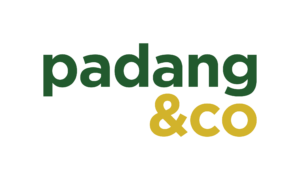
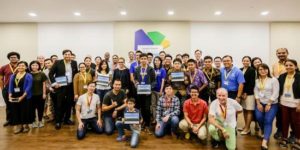
WHO and ILO define occupational health as the promotion and maintenance of the highest degree of physical, mental and social wellbeing of workers in all occupations. In occupational health, it is to avoid and reduce workplace factors that may cause adverse health effects among workers.
Food production in the agriculture sector is significant to feed the growing population. We need to control pests in agriculture and pesticides usage. However, we must avoid that these substances intoxicate workers.
Decent Rural Living Initiatives Anchor Members recognise such problem on the ground; the members came together to look for solutions to help create a safer workplace for our workers in areas where we operate and where our supply chain is
Through a creative approach like Designathon to answer How might we improve worker health and safety through PPE design?
- A structured format for crowdsourcing ground-up innovation.
- Participants will develop and stress-test ideas in a high-energy setting before presenting their concepts/prototypes to a judging panel.
Our three main aims are to explore innovative ways on how to
- Make PPE more comfortable in the tropical climate
- promoting adherence to PPE safety standards
- Reducing costs and improving the quality of PPE
DRLI Anchor partners are working in partnership with Padang. Co design frameworks on solving challenging problems like ensuring our workers working in the field wearing comfortable wearable PPE in the field. Together DRLI Anchor partners and other brands partners like Pepsico, Cargill and other partners work to co-create and frame themes to align with the strategic sponsorship goals.
